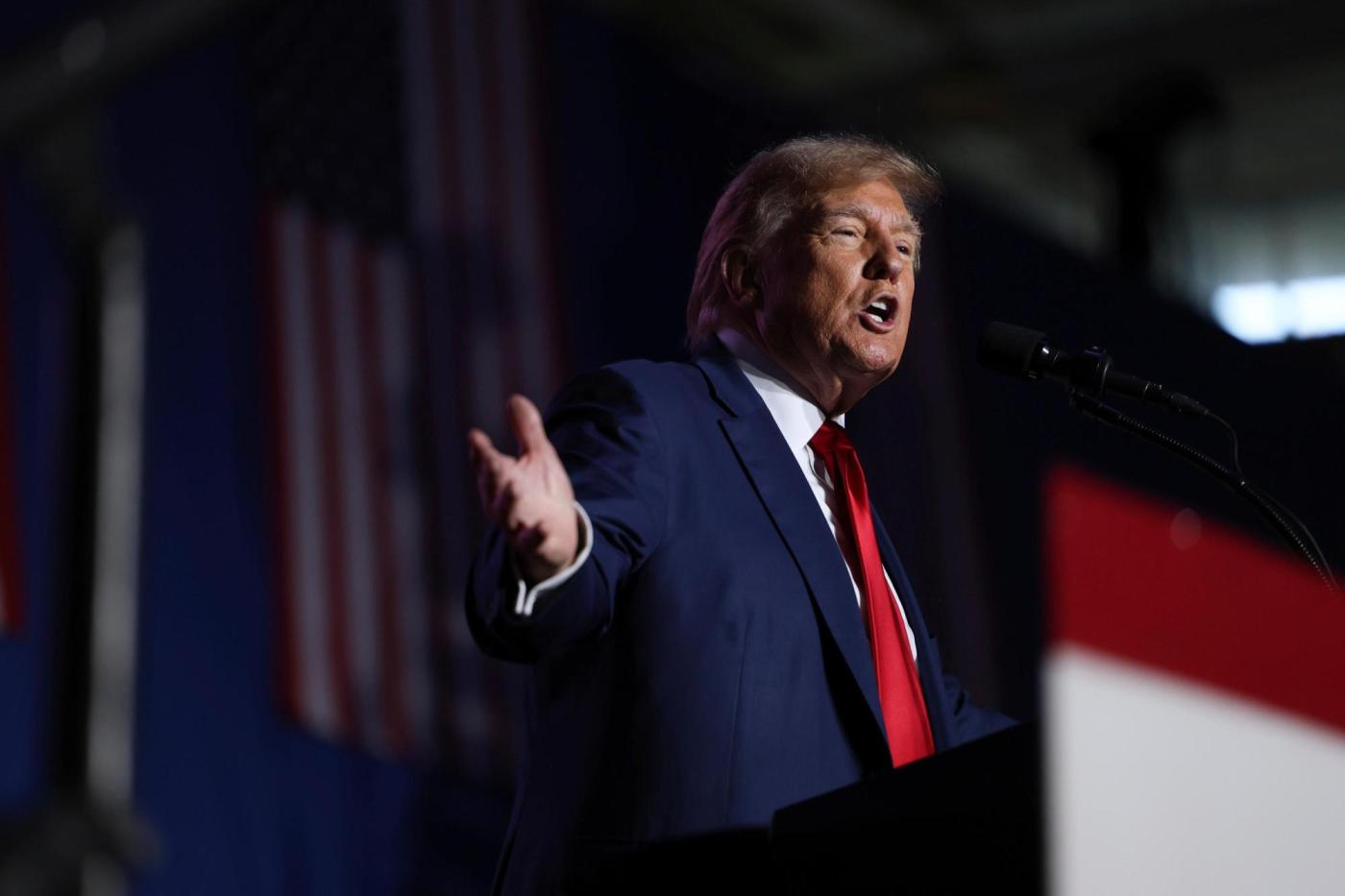
Hearing date for Trump ballot eligibility challenge to be discussed in ‘near term,’ official says
The head of a commission that could determine former President Donald Trump’s ballot eligibility in Massachusetts largely declined to discuss the matter Friday but said a potential hearing date on a legal challenge filed this week would be discussed in the “near term.”
Retired Judge Francis Crimmins Jr., a Republican who leads the State Ballot Law Commission, did not answer a handful of questions about the commission and case that is now before the body, telling the Herald he cannot “comment on a matter that’s pending before the commission.”
“That will be, I am sure, discussed in the near term. And as you are aware, we have to publish any hearing date in advance,” Crimmins said over the phone when asked if there is a likely date for when a hearing could be held.
Free Speech for People, a liberal advocacy group, and Boston-based Attorney Shannon Liss-Riordan filed a challenge with the State Ballot Law Commission Thursday that argued Trump is not eligible to appear on the Massachusetts presidential primary and general election ballots because of his role in the Jan. 6 attack on the U.S. Capitol three years ago.
It followed rulings in Colorado and Maine that found Trump ineligible to appear on each state’s respective ballot under Section 3 of the 14th Amendment, a Civil War-era clause that bars from office anyone who took an oath to uphold the Constitution but engaged in an “insurrection or rebellion” against it.
But Secretary of State William Galvin previously said that Trump will still appear on the Massachusetts presidential primary ballot because of printing timelines and a process where state parties submit names to his office.
Eligibility to serve in office is a different matter, he said.
“If for whatever reason the Democratic Party wanted to put (former President Barack) Obama or some other ineligible person, clearly ineligible person on the ballot, they could. But it wouldn’t mean that they’d be automatically eligible to be serving again,” Galvin previously told the Herald.
The State Ballot Law Commission in Massachusetts is a bipartisan, five-member body at full strength, but only has three people serving at the moment, including former state Sen. Joe Boncore, a Democrat who did not respond to multiple inquiries, and Attorney Joseph Eisenstadt, a Democrat who did not return a message left at his office.
Gov. Maura Healey appointed Boncore to serve on the commission and he was sworn in on Dec. 8, according to a Healey spokesperson. Former Gov. Charlie Baker, a Republican, appointed the other two members.
John Bradley Jr. was the last person the commission ordered off the ballot during the 2018 race for Plymouth District Attorney, according to a spokesperson for Galvin.
While Bradley would later go on to run a successful write-in campaign in the primary, the commission pulled his name off the ballot because of residency requirement issues, according to a copy of the decision provided to the Herald.
The most recent objection was filed last month against a Republican State Committee candidate but was dismissed due to “technical reasons,” the Galvin spokesperson said.
“The last time they issued decisions on the merits was on 2022 objections. Those were relating to residency and signatures, and they were all overruled (meaning the candidates stayed on the ballot),” the spokesperson, Deb O’Malley, told the Herald.
The commission also heard “a number of challenges” to signatures in 2020, O’Malley said, as courts allowed electronic signature gathering that year. That included an objection to former 9th Congressional candidate Helen Brady’s nomination papers, a challenge that was successful but later overruled by the Supreme Judicial Court.
“Another 2020 objection was also sustained, because the candidate defaulted,” O’Malley said.


